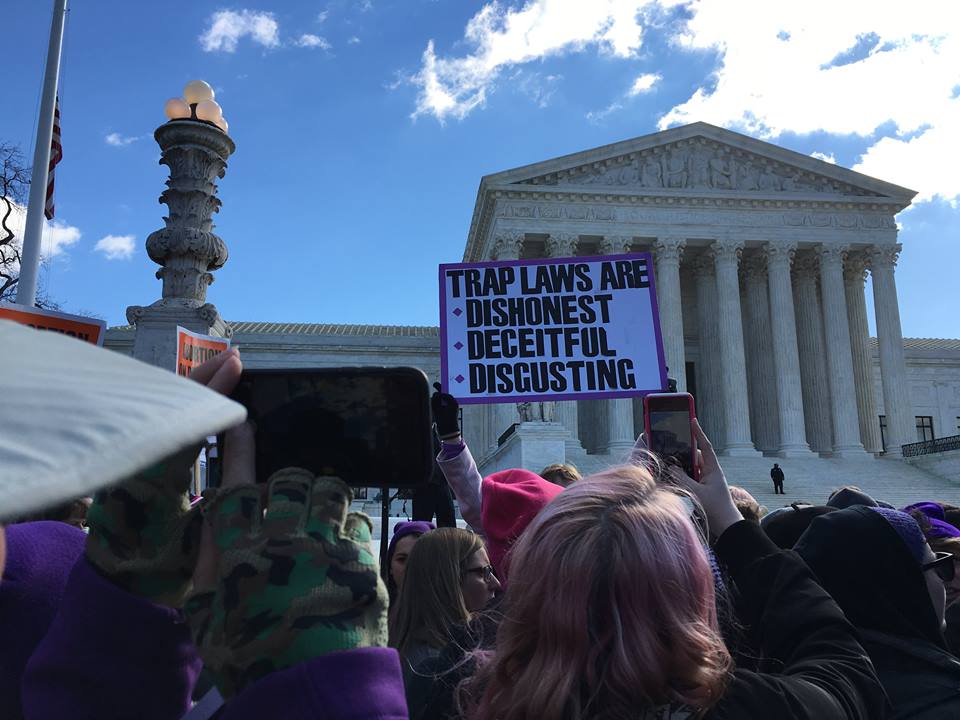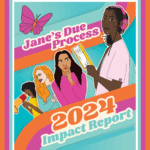Emily Rooke-Ley
February 29, 2016
On Wednesday, the Supreme Court will hear oral arguments inWhole Woman’s Health v. Hellerstedt, arguably the most significant reproductive rights case since Planned Parenthood v. Casey in 1992. The Court will consider the merits of Texas House Bill 2 (HB 2), the omnibus anti-abortion bill that the state legislature passed in 2013 and has served to shutter over half of the state’s abortion clinics.
Abortion will always be accessible for women with means; they are not my focus here. I am concerned about those without means, those for whom onerous restrictions are end-all barriers. Abortion may as well be illegal for them.
Not too long ago, I worked with a 16 year-old who wanted an abortion. With a drug-addled mother and an absent father, seeking parental consent was not an option. She was on her own, both to obtain a judicial bypass through a court hearing and to travel to her appointment. Prior to HB 2 there was an abortion clinic in her hometown, but now she had to travel two and a half hours to the nearest provider. Terrified, she got on a Greyhound before sunrise. Arriving in mid-morning, she walked to the clinic from the bus station. Six hours later, nearing sunset, she emerged from the clinic. Heaving through bouts of tears, she called me from the side of a highway, near a deserted gas station, in the dark of the night. She had tried to walk back to the bus station but got lost. She was trying to get a taxi, but coming from a tiny, rural town, she had “never been to the city” and had no idea how to get one. She had already missed her bus, and the next one wouldn’t come for hours. All alone on the Greyhound, she arrived home at 1:00 a.m.
Another client of mine, a young woman, dropped out of school to take care of her younger siblings. Her parents—sick, poor, and angry—could not handle such responsibility. When she became pregnant and learned that she would need to travel hours to reach the nearest abortion clinic—and that her Medicaid would cover none of the $1,200 fee—she plainly stated that getting a safe and legal abortion just wasn’t an option. “My boyfriend and I have found some ideas online for how to do it at home. I heard that if he kicks my tummy hard enough it will work,” she told me.
How, I ask, is that not an undue burden? Where in this situation is the lawmaker protecting these young women?
Motives became further apparent when state attorneys defending HB 2 at the Fifth Circuit Court of Appeals concluded that long-distance travel for women in West Texas did not pose an undue burden, since they could simply travel to abortion clinics located in neighboring New Mexico. Evidently ignorant that their logic sabotaged their entire argument, state attorneys appeared (justifiably) embarrassed when one judge pointed out that New Mexico does not employ any of the “safety” requirements that HB 2 imposes.
The lies and misinformation promulgated by anti-abortion lawmakers are nowhere more present and devastating than in the real-life stories of Texas women I encounter every day. Enacted to protect women, laws like HB 2 do just the opposite. If the Supreme Court upholds HB 2, the consequences for women across the country will only become graver.
Our work has been featured in part one of a three-part series by the Christian Science Monitor looking at the current state of abortion access in Texas ahead of Wednesday’s oral argument.




